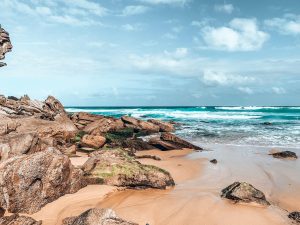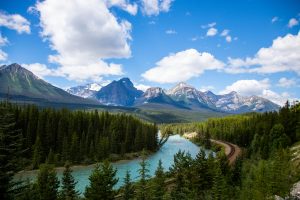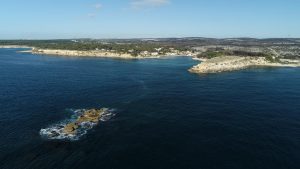June 5, 2020 – We are joining forces to call on all governments around the world to retain our precious intact ecosystems and wilderness, to preserve and effectively manage at least 30% of our planet’s lands and oceans by 2030, and to restore and conserve biodiversity, as a crucial step to help prevent future pandemics and public health emergencies, and lay the foundations for a sustainable global economy through job creation and human well-being.
The rapid and devastating spread of COVID-19 is a tragedy with monumental impacts on people, economies and societies that will endure for years to come. This pandemic provides unprecedented and powerful proof that nature and people share the same fate and are far more closely linked that most of us realized.
Research shows that illegal and non-regulated wildlife trade and consumption as well as deforestation and destruction of intact ecosystems can increase the risk of disease transmission from wildlife to people. Therefore, strictly regulating and controlling wildlife trade, reducing deforestation, preserving large intact areas, and other well conserved natural areas, expanding protected areas, as well as improving the connectivity between those areas and minimizing potentially harmful contact with wildlife while sustainably supporting local communities would contribute significantly to prevent and reduce diseases. Moreover, we must not forget that nature is one of the most important sources for the development of medicines and antibiotic treatments and can play a major role in regulating diseases.
Furthermore, the Global Assessment Report published in 2019 by the Intergovernmental Science-policy Platform on Biodiversity and Ecosystem Services clarified that we are currently experiencing an unprecedented wave of natural destruction worldwide with a so-called “mass extinction event” well under way.
First and foremost, we must all do our part to support those who have been directly affected by the pandemic and the hardships it has caused, while ensuring our ambition to halt biodiversity loss and achieve sustainable development. Our societies are facing challenges that we have not seen in generations.
Going forward, we must reassess our relationship with nature to stop the recurrence of such devastating events, by rethinking our consumption and production patterns, strengthening the sustainable use of resources, and prioritizing investing in the protection of nature to help boost global economies. We must recognize that protecting nature will help us not just to reduce the risk of new pandemics and other public-health emergencies, but prevent future economic crises caused by biodiversity loss and climate change, as well as help boost global development. More than half of the world’s GDP directly depends on nature.
The aggregated value of ecosystem services is estimated to be roughly US $125 trillion per year. Recent studies estimate that the economic benefit compared to the actual cost of conserving nature worldwide is at least 100:1. So, any plan to get people back to work and economically recover must include funding to support our natural world – which provides essential services for the survival of humanity.
We must ensure that economic incentives are allocated to promote actions that benefit biodiversity, stop subsidies that are harmful to biodiversity, and integrate nature recovery goals into our business and financial decisions.
We have a beautiful world to protect. Nature is a global common and all of us have a role to play in its protection. As we have found, time and again, if we protect it, it will protect us with clean air, clean water, better health and other uncounted ecological services. We also know that we cannot safeguard the world’s remaining biodiversity without partnering with and respecting the rights and the traditional knowledge of Indigenous Peoples and Local Communities, who often are the world’s best stewards of nature.
The world has a moral and pragmatic imperative to come together, to take strong decisions and put nature as a cornerstone of economic and social recovery plans. Investing in protecting natural places and the plants and animals that thrive there will get us one step closer to a healthy, stable and prosperous world foreseen by our common 2030 Agenda for Sustainable Development. We must act now, and we must act boldly.
Endorsed by
H.E. Ivan Duque Márquez, President of Colombia , H.E. Carlos Alvarado Quesada President of Costa Rica , H.E. Simonetta Sommaruga, President of Switzerland and Minister of the Environment, Transport, Energy and Communications (Switzerland), H.E. Teresa Ribera Rodríguez, Vice President of the Government , Minister of the Ecological Transition and demographic challenge (Spain), H.E. Krista Mikkonen Minister of Climate Change and the Environment (Finland), H.E. Brune Poirson, Secretary of State, Ministry of Ecological and Solidary transition, (France), H.E. Lee White Minister of Water, Forests, the Sea, the Environment, responsible for the Climate Plan, the Sustainable Development Goals and the Land Use Plan of (Gabon), Hon. Simon Stiell, Minister for Climate Resilience, the Environment, Forestry, Fisheries and Disaster Management (Grenada), H.E. Carole Dieschbourg, Minister for the Environment, Climate and Sustainable development (Luxembourg), Hon . Christopher J. Loeak Minister in assistance to the President and for the Environment (Marshall Islands), H.E. Laurent Anselmi, Minister of Foreign Affairs and Cooperation (Principality of Monaco) , H.E Mr. Tserenbat Namsrai, Minister of Environment and Tourism (Mongolia) , H.E Minister Wallace Cosgrow- Minister of Environment, Energy and Climate Change (Republic of Seychelles), H.E. Dr. Thani Bin Ahmed AlZeyoudi Minister of Climate Change and Environment (United Arab Emirates).


